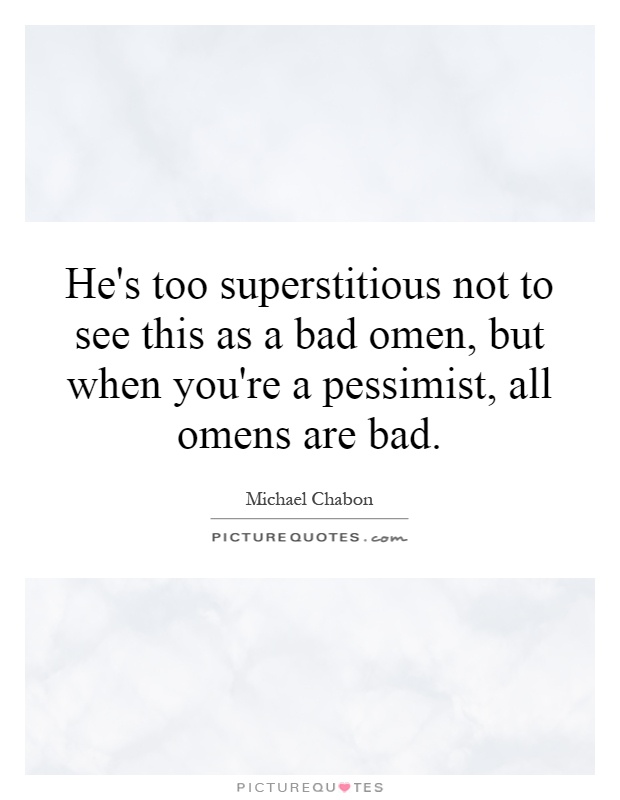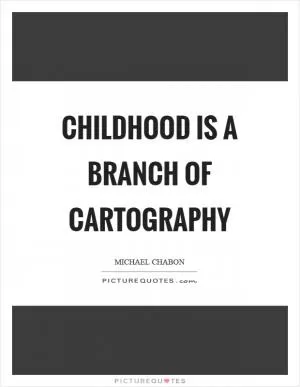He's too superstitious not to see this as a bad omen, but when you're a pessimist, all omens are bad

He's too superstitious not to see this as a bad omen, but when you're a pessimist, all omens are bad
Michael Chabon, the acclaimed author known for his intricate storytelling and complex characters, often explores themes of fate, superstition, and pessimism in his works. In his novel "The Amazing Adventures of Kavalier & Clay," Chabon delves into the lives of two Jewish cousins who create a comic book superhero during the tumultuous years of World War II. The characters grapple with their own superstitions and pessimistic outlooks as they navigate the challenges of their time.The quote "He's too superstitious not to see this as a bad omen, but when you're a pessimist, all omens are bad" encapsulates the mindset of many of Chabon's characters. In a world filled with uncertainty and chaos, it is easy to fall into the trap of superstition and pessimism. The character in question may be inclined to view any sign or symbol as a harbinger of doom, unable to see the potential for positivity or change.
Chabon's writing often delves into the complexities of human nature, exploring how our beliefs and attitudes shape our perceptions of the world around us. Superstition and pessimism can be powerful forces, influencing our decisions and coloring our experiences. In the case of the character in question, his superstitious nature may prevent him from seeing the potential for growth or transformation in a seemingly negative situation.
Chabon's exploration of superstition and pessimism in his works serves as a reflection of the human condition. We all grapple with uncertainty and fear, seeking meaning and order in a chaotic world. The character's struggle with superstition and pessimism highlights the universal desire for control and understanding in the face of adversity.












 Friendship Quotes
Friendship Quotes Love Quotes
Love Quotes Life Quotes
Life Quotes Funny Quotes
Funny Quotes Motivational Quotes
Motivational Quotes Inspirational Quotes
Inspirational Quotes